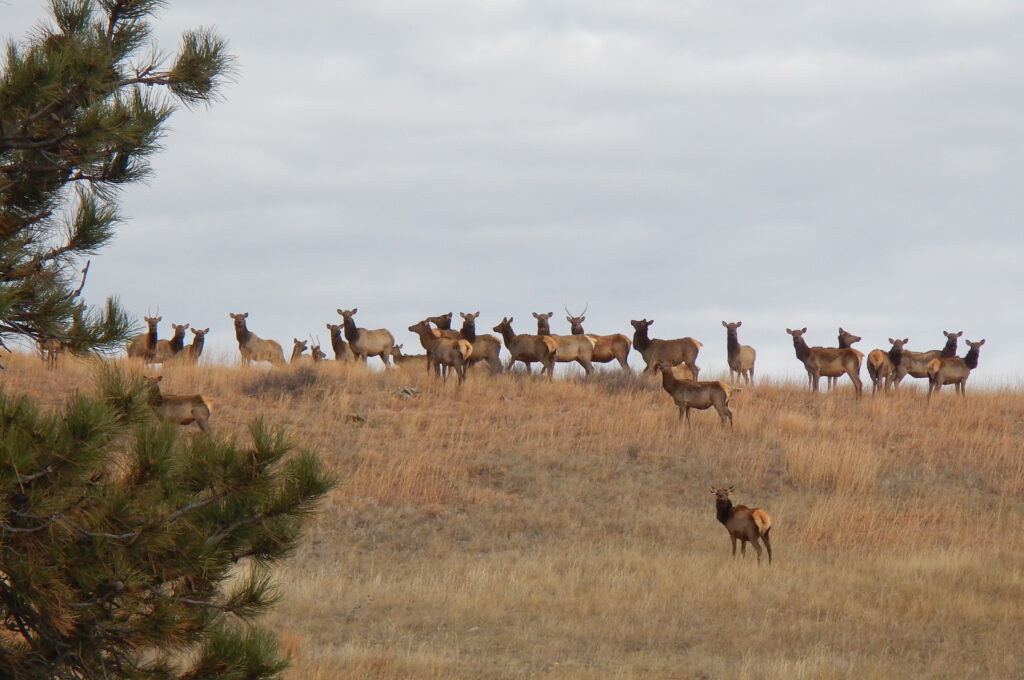
Joshua Haiar, South Dakota Searchlight
There aren’t enough elk in the state for all the hunters who want to shoot them, yet in some areas, farmers and ranchers complain of too many elk trampling cornfields, breaking fences and eating livestock feed.
The state Senate advanced legislation Wednesday that supporters say would ease both problems. But opponents say the bill could diminish elk populations while granting special treatment to some hunters seeking highly coveted licenses.
The bill would create extra licenses for South Dakota landowners and their lessees to hunt a female elk every year on agricultural land in the Prairie Elk Units. The units include much of the land west of the Missouri River, but not the Black Hills.
The Senate advanced the bill on a 28-6 vote, sending it to a House committee.
Tom Kirschenmann, director of wildlife for the state Department of Game, Fish and Parks, testified in favor of the bill during an earlier Senate committee hearing.
“The areas where this tag would be used or implemented would be areas where the population is high,” Kirschenmann said.
He added that some landowners are complaining about damages caused by elk, telling the department “enough is enough.”
The bill is controversial in the broader hunting community.
The allocation of elk hunting licenses is managed through a lottery system, overseen by Game, Fish and Parks. The system is designed to maintain the elk population by limiting the number of hunters in the field each season.
There were about 40,000 resident applicants for 3,500 licenses last year. Landowners already have first preference on half of those licenses, and the bill would create an extra class of licenses for landowners.
Kirschenmann said the bill would help manage the elk population more effectively. Additionally, he said landowners who are granted the new licenses may become more receptive to allowing other hunters with regular elk licenses onto their land.
Opponents fear the legislation could lead to overharvesting, potentially threatening the elk population’s sustainability. Additionally, they say there is no language in the bill guaranteeing the public will get more opportunities to harvest an elk in return, and they predict a request in the future to allow landowners and lessees to sell their elk licenses to paying customers.
George Vandel formerly held the same position as Kirschenmann. Vandel now lobbies for the South Dakota Wildlife Federation, which advocates for resident hunting opportunities, more habitat and greater public access to that habitat.
During the bill’s initial committee hearing, Vandel said there is nothing in the bill that guarantees it would create more opportunity for the public to harvest an elk.
“We don’t see the assurances that those things are going to happen,” he said. He reminded the committee that the state’s elk are managed by the state on behalf of the public.
“We would like to see more assurances,” Vandel said. “We didn’t have any opportunity for input as this bill was coming forward.”
